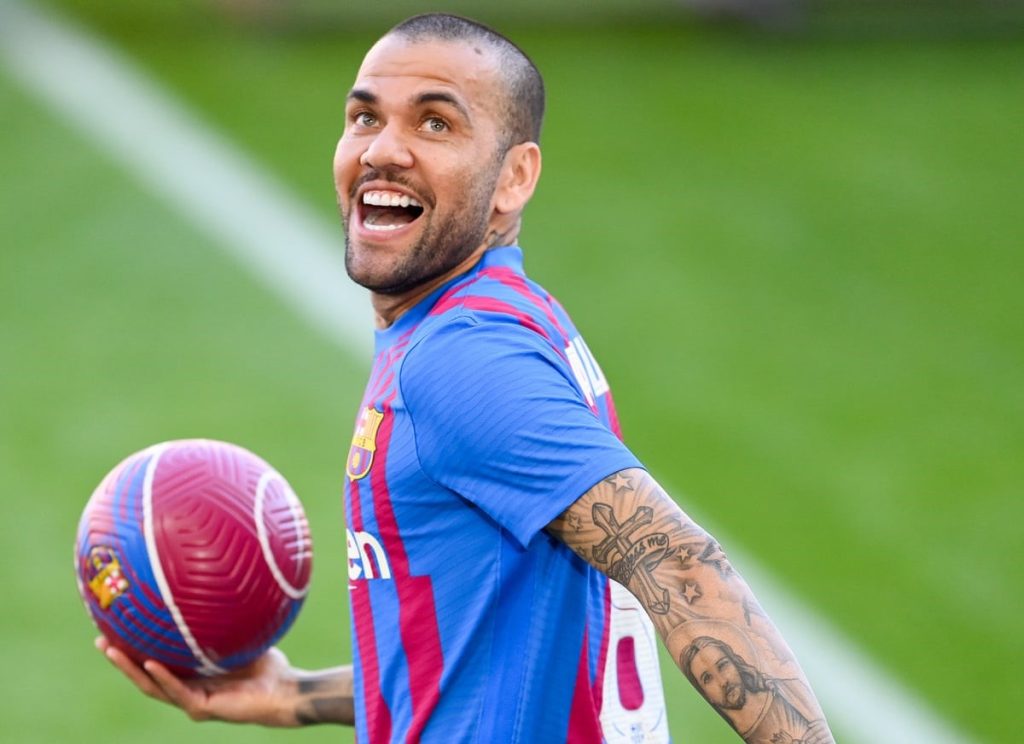The Dani Alves Rape Case: A Conviction Overturned and a Legal System Under Scrutiny
The case of Dani Alves, the celebrated Brazilian footballer, took a dramatic turn when a Spanish appeals court overturned his rape conviction, sparking widespread debate about the complexities of sexual assault allegations and the efficacy of the legal process. Alves had initially been sentenced to four-and-a-half years in prison for raping a young woman in a Barcelona nightclub’s VIP bathroom on New Year’s Eve 2022. However, the appeals court, citing "shortcomings" and "inaccuracies" in the initial trial, annulled the conviction, releasing Alves on bail pending further legal proceedings.
The overturning of the conviction hinged on the appeals court’s assessment of the evidence and the trial proceedings. The court identified "gaps, inaccuracies, inconsistencies, and contradictions" in the facts, legal assessment, and consequences presented during the trial. This led to the unanimous decision by the four judges to overturn the conviction. The court also rejected the prosecution’s appeal for a harsher nine-year sentence, further underscoring the perceived flaws in the original trial. This decision has raised questions about the handling of the case and the broader challenges in prosecuting sexual assault cases.
The initial trial had presented conflicting narratives. The accuser, testifying anonymously behind a screen, recounted a harrowing experience of being forced into non-consensual sex by Alves, enduring "anguish and terror." Alves, on the other hand, maintained that the encounter was consensual, denying any violence or coercion. He argued that the woman had the freedom to leave and was not forced to remain in the bathroom. His defense team portrayed the accuser as being "glued" to Alves in the nightclub, suggesting a level of intimacy that contradicted her claims of assault.
Alves’s initial denials of even knowing the accuser, later retracted after CCTV footage placed them together, further complicated the picture. He attributed his initial lies to fear of his wife’s reaction, a claim that likely damaged his credibility in the eyes of many. The conflicting accounts and shifting narratives made for a convoluted case, leaving room for doubt and ultimately contributing to the appeals court’s decision to overturn the conviction.
The overturning of the conviction removes the previously imposed financial penalties and probationary period. The lower court had ordered Alves to pay €150,000 in compensation to the accuser and serve five years of probation following his prison term. However, these measures were voided with the annulment of the conviction. The case highlights the complexities of balancing the rights of the accused with the need to support survivors of sexual assault and ensure accountability for perpetrators.
This case is far from over, with the legal battle likely to continue. The prosecution may choose to appeal the overturning of the conviction, leading to further legal proceedings. The case has become a focal point in Spain, raising questions about the legal system’s handling of sexual assault cases and the challenges in navigating conflicting testimonies and interpreting ambiguous evidence. The Alves case also underscores the broader societal debate about consent, sexual assault, and how these sensitive issues are addressed within legal frameworks.
The impact of the case extends beyond the courtroom, affecting Alves’s career and reputation. Once a celebrated football star with numerous accolades, including three Champions League titles and extensive international experience representing Brazil, Alves saw his career come to a halt with his arrest. His contract with Mexican club Pumas UNAM was terminated, and his future in professional football remains uncertain. The case serves as a stark reminder that the legal system’s complexities can have profound consequences on the lives and careers of individuals, regardless of their prominence or prior achievements.


